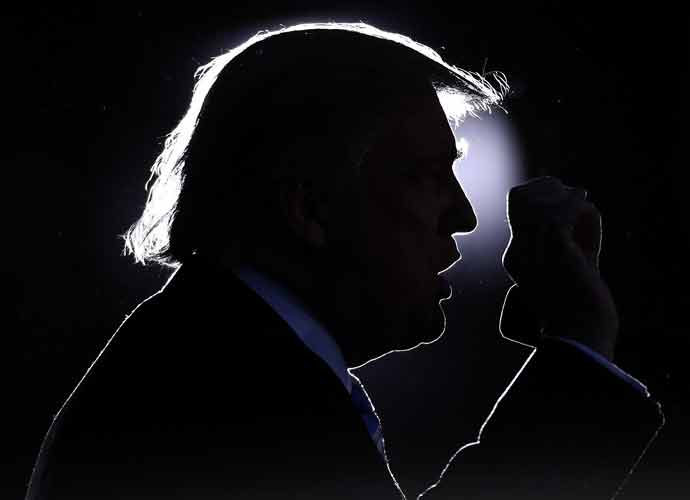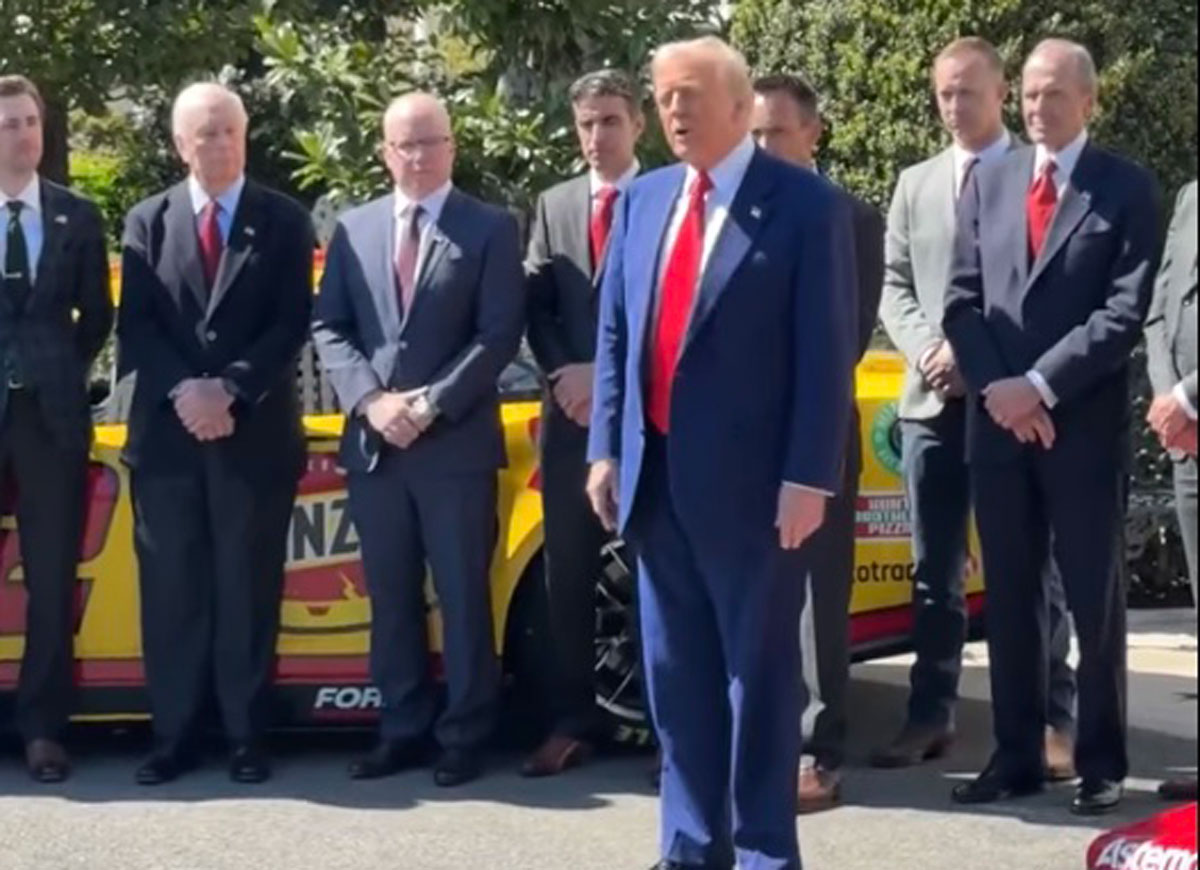After Trump Claims Some Undocumented Migrants Are ‘Not People,’ Critics Say His Rhetoric Isn’t New
During a rally in Dayton, Ohio, last week, Former President Donald Trump declared that some illegal immigrants should not be considered people and warned that it will be a “bloodbath” if he does not get reelected.
“I don’t know if you call them people,” Trump stated at the rally. “In some cases, they’re not people, in my opinion. But I’m not allowed to say that because the radical left says that’s a terrible thing to say.”
Trump was in Ohio to campaign with Senate candidate Bernie Moreno, who went on to win the Republican nomination to challenge Democratic Sen. Sherrod Brown.
Moreno, a businessman, faced a scandal when it was revealed that a profile on an adult website was linked to him seeking the company of “young men.”
“We don’t need to vote in five different languages,” he argued. “We learn the language. It means you assimilate. You become part of America; America doesn’t become part of you.”
Later, Trump suggested that voting will no longer exist if he loses the election
“I don’t think you’re going to have another election in this country if we don’t win this election,” he said.
The former president also promised to hike tariffs on foreign-made cars.
“Now we’re going to put a 100 percent tariff on every single car that comes across [the border] line, and you’re not going to be able to sell those guys — if I get elected,” he added.
“Now if I don’t get elected, it’s gonna be a bloodbath for the whole — that’s gonna be the least of it,” Trump warned later on at the rally. “It’s going to be a bloodbath for the country, that will be the least of it.”
President Joe Biden‘s campaign labeled this comment as a promise of political violence.
“This is who Donald Trump is: a loser who gets beat by over seven million votes and then instead of appealing to a wider mainstream audience doubles down on his threats of political violence,” spokesman James Singer said in a statement. “He wants another January 6, but the American people are going to give him another electoral defeat this November because they continue to reject his extremism, his affection for violence, and his thirst for revenge.”
Steven Cheung, a Trump campaign spokesman, said that Trump’s remark was not about violence, but was instead an extension of his comments about imported cars.
“If you actually watch and listen to the section, he was talking about the auto industry and tariffs,” Cheung said in a statement.
Immigration is an explosive issue in the presidential campaign. Trump and Biden had staged dueling visits to Texas border towns in February, reprimanding each other for a recent increase in illegal immigration.
Trump stated that the surplus of migrants was “a Joe Biden invasion.”
Biden blamed him for the death of a $20 billion bipartisan bill to increase detention capacity and to hire thousands of Border Patrol officers.
“Among my very first actions upon taking office will be to stop the invasion of our country,” Trump promised on March 16.
In December 2023, Trump faced criticism for suggesting that undocumented immigrants were “poisoning the blood of” America. His rhetoric was compared to that of Adolf Hitler in his autobiography, Mein Kampf. Trump denied ever having read this book and defended his remarks.
During a speech he gave in Iowa, Trump repeated his belief that undocumented immigrants from Africa, Asia and South America were “destroying the blood of our country.” Trump emphasized his belief that there are health risks posed by undocumented immigrants and implied that they could bring diseases into the country.
In May 2023, Trump, in a campaign video on Twitter, said that if he is reelected in 2024, he would end birthright citizenship for children born to immigrants who enter the U.S. unlawfully. This move would infringe on how the 14th Amendment has historically been interpreted, but the former president stated that he wants that changed – and the newly conservative Supreme Court may just support him.
If his plan is ever enacted, it would most likely lead to a legal challenge from his opponents.
In a press release, Trump said that parents would need to be U.S. citizens or legal permanent residents for birthright citizenship to apply.
This policy could have affected the former president’s wife, Melania Trump, and his son, Barron Trump, if it had been enacted at the time. His wife arrived in the U.S. on an EB-1 work visa in 2001 and was not a U.S. citizen until 2006 – after his son’s birthdate. His plan, as a result, would not grant his son a guaranteed path to citizenship since only one of his parents was born in America.
RELATED ARTICLES
Get the most-revealing celebrity conversations with the uInterview podcast!







Leave a comment